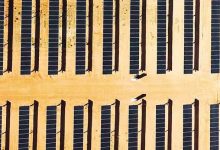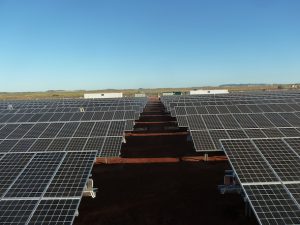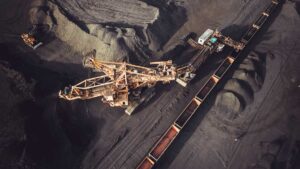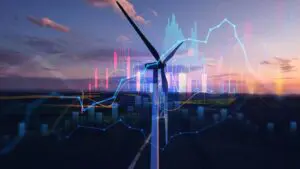At the International Renewable Energy Agency’s (IRENA) World Congress event in Abu Dhabi last weekend, Australia was mentioned frequently.
Representatives from around the world – with the notable exception of Australia itself – brought up the bushfire disaster in the context of the need for urgent action.
“In Australia over the last weeks more forest and land has burned than three times Belgium and 40 times my country. We have to be aware that we are approaching the tipping points of climate, the climate crisis age. We have to act now”, Luxembourg’s representatives told the forum, last Saturday. Australia is held up as the canary in the coal mine – the country that is taking on the headwinds of the planet’s warming climate.
Australia is being cited in this context because there is incredible urgency in the air. Climate ambition needs to ratchet upwards, and IRENA claims renewables can ‘cut energy related CO2 emissions by about 70%’.
In a series of new reports released during the World Congress event and the subsequent Abu Dhabi Sustainability Week, they outline vast opportunities for jobs across the world.
It’s roughly 11 million jobs today, and due to grow significantly in the near future. They also state that renewables and energy efficiency could boost global GDP by 2.5% or 5%, and that more renewable energy could remove $10 billion USD of subsidies, which could return to taxpayers around the world. IRENA’s message is one of hope, in which new power generation technologies power a transition that serves as a benefit, rather than a hindrance.
Countries attending the Congress were keen to talk of their own efforts to fulfil these promises. Denmark, for instance, expects to reach 100% renewable energy by 2028. Even small island nations are straining to increase their renewable energy ambitions, despite the incredible struggles they face with exposure to climate impacts.
“Small island states are the most affected victims of global warming. We live in fear of what next is going to happen. Apprehensions about the future of our island states have amplified. We are facing a threat to our very existence”, said the Deputy Prime Minister of Mauritius. Yet, the session on small island nations featured a litany of countries declaring ambitions for high penetration of renewables like wind and solar in short timeframes.
Geopolitics, of course, complicates the pathways for the planet’s adoption of renewable energy and – importantly – the way its benefits are distributed. “The energy transition fundamentally impacts the social and political situation around the world”, said Ms. Kirsten Westphal, Senior Associate at German Institute for International and Security Affairs.
These events are not blind to the new challenges that are cropping up in countries placing their full efforts into decarbonising their electricity supplies. Justice, just transitions, equity and society were frequently cited as major concerns, as they should be, but there was plenty of effort placed into discussing solutions too.
IRENA has also released a new report examining the technological considerations in a high variable renewable energy grid (wind and solar). They map out a scenario in which 33 gigatonnes of CO2 emissions are removed from the world’s energy system through the use of renewable energy, electrification and improvements in energy efficiency.
.@IRENA DG @Flacamera opens the #IRENA10A Sustainable Energy and Jobs Launch session saying: “Everybody is talking about a #justtransition but not many know how to make it happen. We all have to work on this subject to present a clear voice that supports an inclusive transition.” pic.twitter.com/QhDp0kIzvd
— IRENA (@IRENA) January 10, 2020
 It was a peculiar experience, to attend an event like this. The discussions are not about whether renewable energy can contribute to the bulk of the planet’s emissions reductions in the near future – that question has been answered by a decade in which renewable energy has grown rapidly, and its price has dropped just as rapidly.
It was a peculiar experience, to attend an event like this. The discussions are not about whether renewable energy can contribute to the bulk of the planet’s emissions reductions in the near future – that question has been answered by a decade in which renewable energy has grown rapidly, and its price has dropped just as rapidly.
IRENA, and most of the countries in attendance, are talking about what comes next – how to make the transition fair, how to make it geopolitically feasible, and how to make it efficient and cheap from a technological perspective.
Australia, meanwhile, is citing renewable energy as a key factor in its response to climate change. But this does not entail increasing the roll-out of wind and solar along with firming technologies like batteries and interconnection.
Rather, the government has cited 100 “new” technologies, including carbon capture and storage, as areas of potential research. It is an old distraction, based on the idea that deployment of existing technologies is either too expensive or too unmanageable without research and development of new technologies.
The Australian government also cites a prediction that the east-coast National Electricity Market (NEM) will be 50% renewables by 2030, though this prediction is the bare minimum, and would occur without any new policy intervention.
This lack of ambition prevails despite the proven success of solar and wind power to date in Australia, and the incredible potential for it to not only dominate all of Australia’s electricity generation, but to generate far more than 100% and become an export.
Australia could easily be a pioneer in renewable energy technologies, it could have a loud and proud place at meetings like the IRENA world congress, and it could easily reap the same rewards that IRENA are highlighting in their copious, detailed reports that have emerged from the meetings. It is an avoidable tragedy that the only presence it had at the world congress was a harbinger of the planet’s worst case scenarios.
Ketan Joshi is a freelance climate and energy writer. He travelled to the IRENA World Congress as a guest of the International Renewable Energy Agency.






